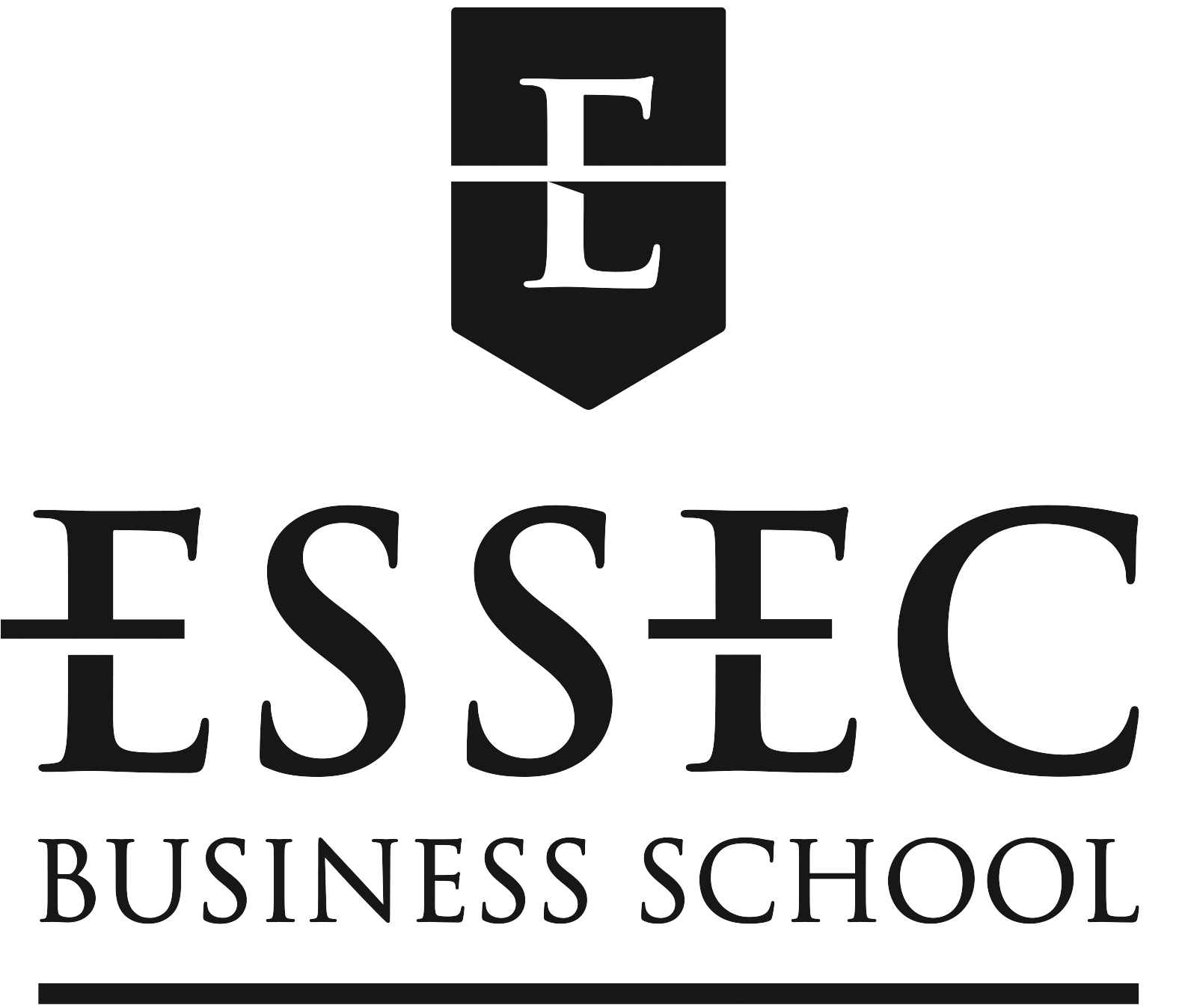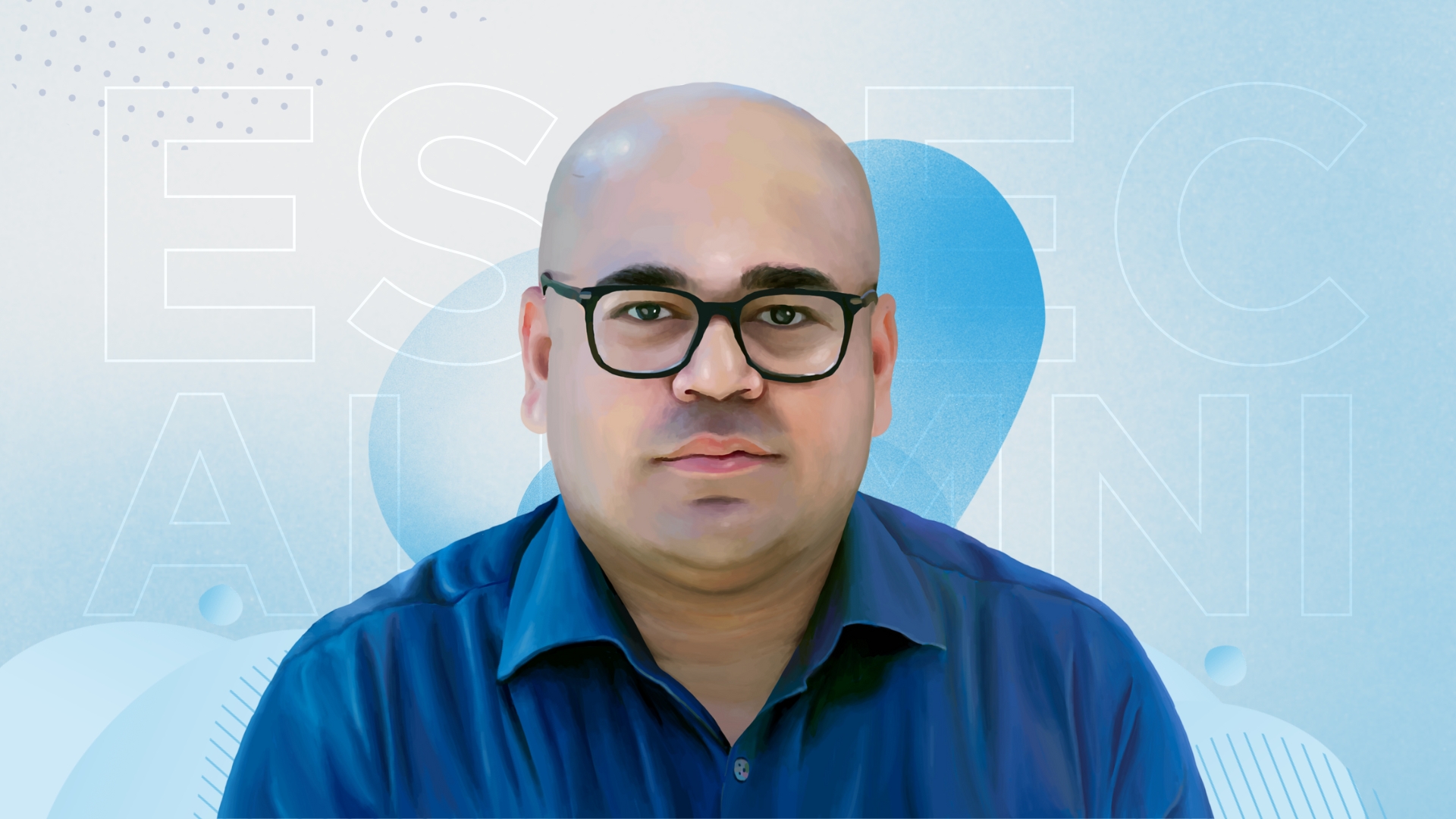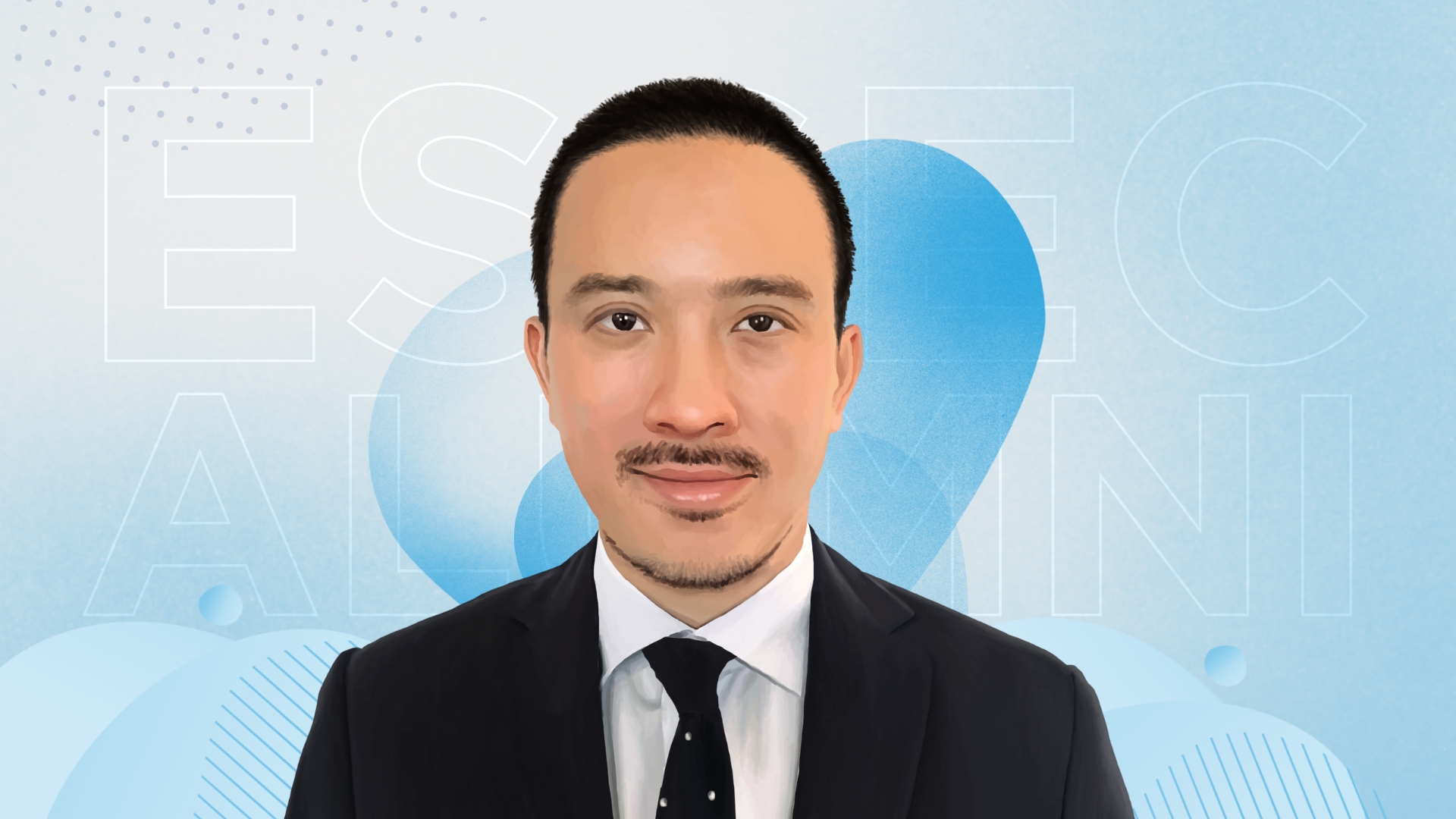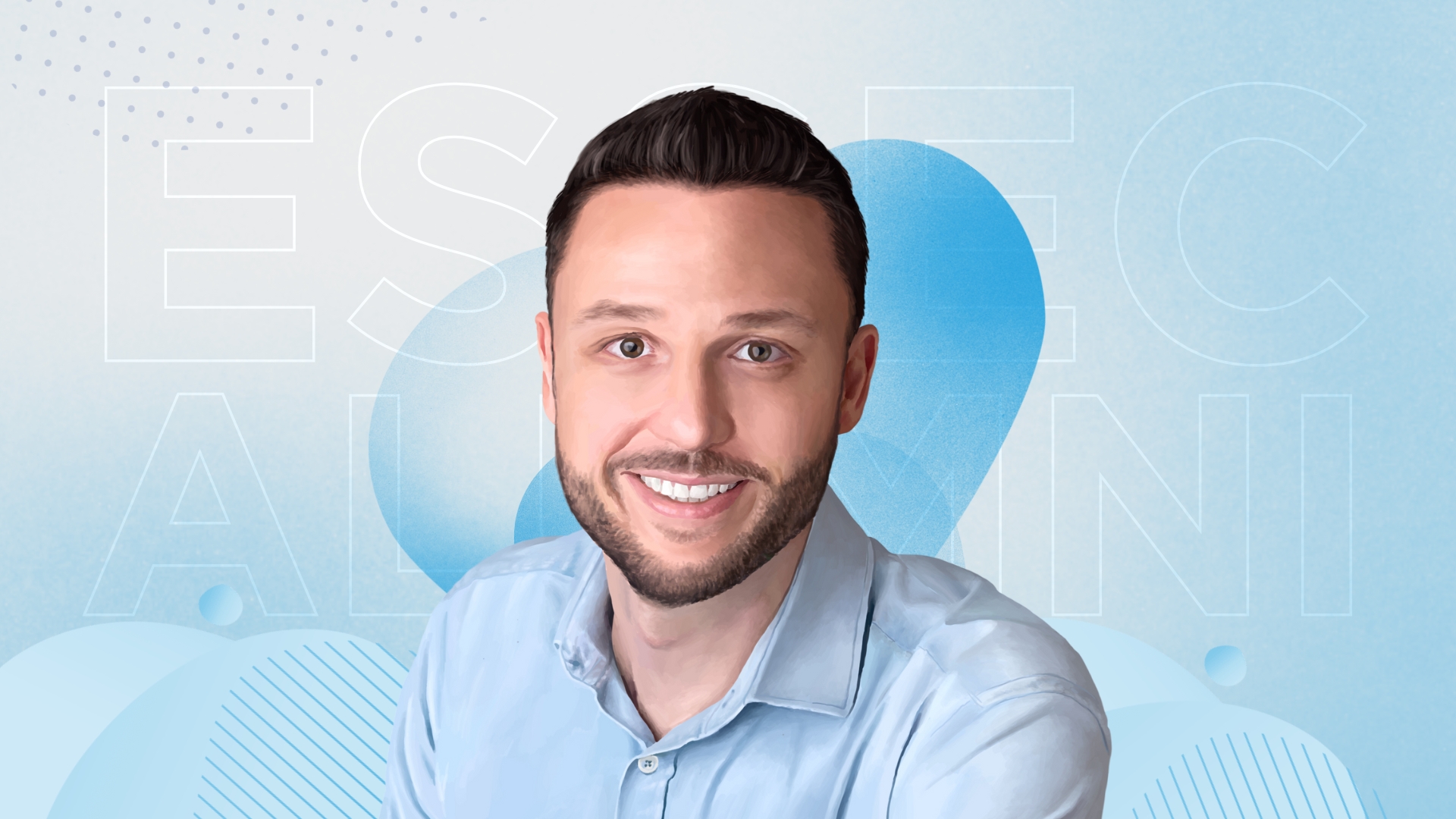- ESSEC alumni believe work is only meaningful if one makes a difference.
- Growth and opportunities come to those willing to give, not just take.
- The world won’t notice ordinary people who follow the crowd.
The youngest finance director at the LVMH Group in China, Global CEO of the iconic Jala Group, Senior Vice President at private equity investment firm Groupe Edmond de Rothschild, and Executive President at Fosun Fashion Group (now renamed Lanvin Group)—these are just a few of the many titles that Alexandre Chieng has taken on since leaving his hometown in France to make his mark in China.
It’s a remarkable list for a 42-year-old, but one would expect nothing less from a man who, from a young, was raised with strict, traditional Chinese values and trained to live up to his family’s legacy.
“It’s a lot of pressure for a kid, and naturally, we’ll try to follow our parents’ footsteps or do better,” Chieng matter-of-factly states.
Significantly, though, he needed to take the well-treaded path into the family business. His reason? “When you want to lead people, you cannot just please everyone. Sometimes, you must go against the trend, follow your inner convictions, and start saying no.”
Fortune Will Favor the Bold
Doing the unexpected is something that defines Chieng’s illustrious career. When he was fresh out of ESSEC Business School and still wet behind the ears working as a financial analyst at BNP Paribas Shanghai, for example, he took it upon himself to rally the company for the first Shanghai Marathon—at a time when “sports was not a thing, and most people didn’t have sneakers.”
“I could very well have ended up running alone,” he recalls. But his efforts to reach out individually to each team member paid off. Half the office ran with him, and many continued to do so even years after Chieng left.
Other stories he shares are of riskier decisions, like when he left the security of LVMH in favor of a new role as an entrepreneur.
Candidly, he admits: “I was scared to death. As an entrepreneur, the pressure is at a different level. You are responsible for the bottom line, the top line, and even the future of your employees.”
What kept him going was the knowledge that as safe as the waters were for him at LVMH, he was bored. “There was a place inside me that wanted to be challenged, to be in action managing a team of people where I was closer to the product.”
Have Courage, Be Convicted
Today, Chieng is driving the growth of the French jewelry brand Agatha Paris as Managing Director of Greater China and helming a fund that invests in the globalization of Chinese brands as a board member of the French Chamber of Commerce and Industry in China.
Reflecting on the journey from his prestigious position at Fosun Group to where he is now, he notes that making these decisions takes work with practice.
“The hardest part of leaving was probably the ego,” he muses. “Sometimes, when you act at the global level, your work becomes a huge part of your life, and when you get a good promotion, in a way, your identity is upgraded.”
But if work doesn’t define him, then what does? “It’s really about who you are and your destiny,” he answers. “I want to be part of a meaningful mission for me, where I could contribute to the greater good.”
You Only Gain if You Give
Contribution is a recurring theme in Chieng’s story, and a value he has kept close to his heart since his days doing the ESSEC MBA.
“ESSEC gave me great teachers, great encouragement, and great friends,” he explains, adding that the school played an instrumental role in training him to reflect on his motivations and teaching him the value of giving instead of taking.
For example, he shares that the younger Chieng had been enticed by the sheer number of student associations he could join and gain from at ESSEC—but with time, he realized “if you want to find sponsors, have members and get people to attend, you have to stop thinking about yourself and start thinking about how you can connect with people.”
The same can be said of those who want to enter the Chinese market, he states, noting that there was a time when as long as you were a foreigner and could speak a bit of Mandarin, you had golden opportunities—” but that was 20 years ago”.
“Now we see so many people come to China and then leave after five years with a bad reputation because they spend their life taking and optimizing their opportunities, and they end up in an ecosystem where no one wants to work with them anymore,” Chieng laments.
He adds: “The people who thrive in the long run, whether locals or foreigners, are those who find a spot to help and contribute.”
His advice? No matter whether your goal is to be in a big company or blaze your own trail in the business world—be ambitious, be challenged, and be yourself. Find your ability to create value no matter where you are and what you do.
RELATED POSTS
ESSEC Alumni Vanessa IIoste: Human Resources Vice President Advocates for Diversity, Equity and Inclusion
Vanessa Iloste's journey from ESSEC to Sephora's HR leadership in Asia highlights her commitment to nurturing talent, championing diversity, and…
ESSEC Alumni Soumonath Chatterjee: Hospitality Veteran Finds Passion in Putting People First
Soumonath Chatterjee's diverse career in hospitality, from front-line staff to Accor’s Digital Director, underscores his dynamic, people-first…
ESSEC Alumni Pierre Clément: CEO Turned Entrepreneur Extols the Need for Attitude Over Experience
Pierre Clément, an ESSEC alumnus, exemplifies the spirit of innovation and leadership, transitioning from CEO at The Kooples to launching his own…
ESSEC Alumni: Ibraham Math-Ly-Roun: Sailing His Luxury Liner Through a Turbulent Sea of Change
Ibaham Math-Ly-Roun, an ESSEC alumnus, navigates the evolving luxury goods industry with a focus on human connections and embracing digital…
ESSEC Alumni Sebastien Lefranc: Head of Start-up Engagement Strives to Power Innovation
Sebastien Lefranc, an ESSEC Master in Strategy Management of International Business alum, thrives in the dynamic payments sector, exemplifying…
ESSEC Alumni Adrian Ng: Pandemic Gives Leader Paws for Thought
In the thriving landscape of Asian pet food, a Singaporean envisions robust growth. He advocates the transformative influence of positive thinking,…







